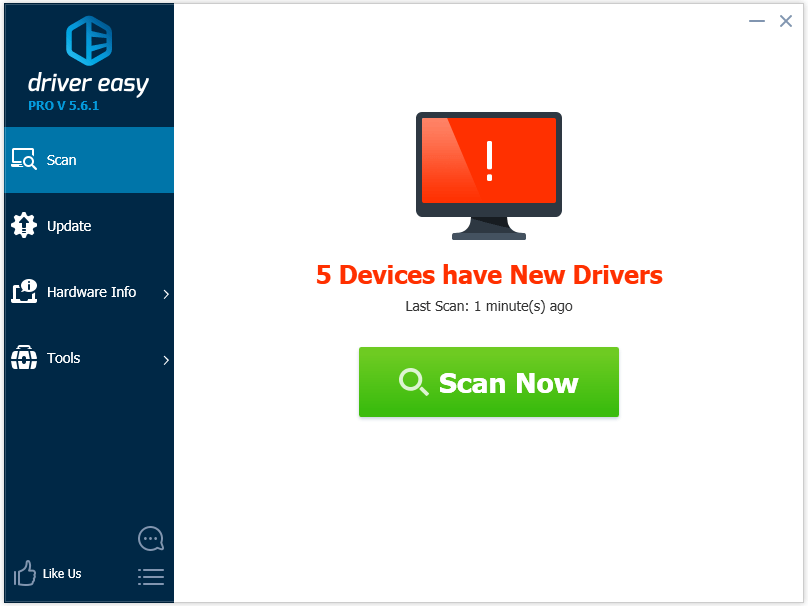This article describes an issue that occurs when you use a FireWire port-based device in Windows 8.1 or Windows 8. Additional steps of configuration is required to enable this update after the installation.
Symptoms
Drivers Eq-3 Port Devices Replicator
Open the Device Manager by right clicking “My computer” and selecting control panel. Look under Ports (COM & LPT). You should see an open port named 'USB Serial Port' Right click on the 'USB Serial Port' and choose the 'Update Driver Software' option. Next, choose the 'Browse my computer for Driver software' option. The serial port ttySx (x=0,1,2, etc.) is major number 4. You can see this (and the minor numbers too) by typing: 'ls -l ttyS.' in the /dev directory. To find the device names for various devices, see the 'devices' file in the kernel documentation. There formerly was a 'cua' name for each serial port and it behaved just a little differently. Right-click PCI Parallel Port, which will have a “!” or “?” next to it to indicate a driver issue. Click Update Driver. Click Browse my computer for driver software. Select the Let me pick from a list of device drivers on my computer option. On the Select your device’s type from the list below screen, click Show All Devices, and click.
Assume that you have a computer that equips with an IEEE 1394 FireWire controller card. After you upgrade the computer from Windows 7 to Windows 8.1 or Windows 8, devices that connect to the computer by using a FireWire port do not work.
Cause
This issue occurs because the legacy 1394 bus drivers (1394bus.sys and Ochi1394.sys) are removed in Windows 8.1 or Windows 8.
Resolution
Update information
How to obtain this update
Microsoft Download Center

The following files are available for download from the Microsoft Download Center:
Operating system | Update |
|---|---|
All supported x86-based versions of Windows 8.1 or of Windows 8 | |
All supported x64-based versions of Windows 8.1 or of Windows 8 |
For more information about how to download Microsoft support files, click the following article number to view the article in the Microsoft Knowledge Base:
119591 How to obtain Microsoft support files from online services Microsoft scanned this file for viruses. Microsoft used the most current virus-detection software that was available on the date that the file was posted. The file is stored on security-enhanced servers that help prevent any unauthorized changes to the file.
Additional steps of configuration requirement
After you install the 1394 OHCI Legacy Driver.msi file, follow these steps:
Right-click the Legacy1394.inf file under one of the following paths based on the computer's architecture:
C:Program Files1394 OHCI Compliant Host Controller (Legacy)x86_driver
C:Program Files1394 OHCI Compliant Host Controller (Legacy)x64_driver
Click Install.
Open Device Manager in Control Panel.
Expand IEEE 1394 Bus host controllers, and then locate the host controller.
Right-click the host controller, and then click Update Driver Software.
The screen shot of the host controller and the Update Driver Software is listed in the following example:Click Browse my computer for driver software.
Click Let me pick from a list of device drivers on my computer.
Click Generic1394 OHCI compliant host controller (Legacy), and then click the Next button.
Click the Close button.

Prerequisites
There are no prerequisites for installing this update.
Registry information
To apply this update, you do not have to make any changes to the registry.
Restart requirement
You have to restart the computer after you apply this update.
Update replacement information

This update does not replace a previously released update.
Drivers Eq-3 Port Devices Lucie

File information
The global version of this hotfix installs files that have the attributes that are listed in the following tables. The dates and the times for these files are listed in Coordinated Universal Time (UTC). The dates and the times for these files on your local computer are displayed in your local time together with your current daylight saving time (DST) bias. Additionally, the dates and the times may change when you perform certain operations on the files.
Windows 8.1 and Windows 8 file information notesThe MANIFEST files (.manifest) and the MUM files (.mum) that are installed for each environment are not listed
For all supported x86-based versions of Windows 8.1 or of Windows 8
File name | File version | File size Digidesign mbox driver. | Date | Time | Platform |
|---|---|---|---|---|---|
1394_ohci_legacydriver.msi | Not Applicable | 208,896 | 15-Aug-2014 | 20:48 | Not Applicable |
For all supported x86-based versions of Windows 8.1 or of Windows 8
File name | File version | File size | Date | Time | Platform |
|---|---|---|---|---|---|
1394_ohci_legacydriver.msi | Not Applicable | 208,896 | 15-Aug-2014 | 20:48 | Not Applicable |
Status
Drivers Eq-3 Port Devices Gigabit
Microsoft has confirmed that this is a problem in the Microsoft products that are listed in the 'Applies to' section.
More Information
Steps of uninstalling the 1394 OHCI Legacy Driver.msi file
Open Control Panel in the Category view.
Click Uninstall a program in Control Panel.
Right-click 1394 OHCI Compliant Host Controller (Legacy), and then click Uninstall.
The screen shot of uninstalling the 1394 OHCI Compliant Host Controller (Legacy) is listed in the following example:

Drivers Eq-3 Port Devices Terminal
Additional package information
This driver is only intended to work with legacy 1394 host controllers. Therefore, you may experience lower transfer data rates than the 1394b driver.
The driver is intended to resolve compatibility issues for 1394 peripherals on 1394b systems. If you are not experiencing these issues, you should continue to use inbox drivers that are provided in Windows 8.1 or Windows 8.
You have to reinstall this stand-alone driver package if you upgrade to a newer operating system version in the future.
For more information about software update terminology, click the following article number to view the article in the Microsoft Knowledge Base:
824684 Description of the standard terminology that is used to describe Microsoft software updates

